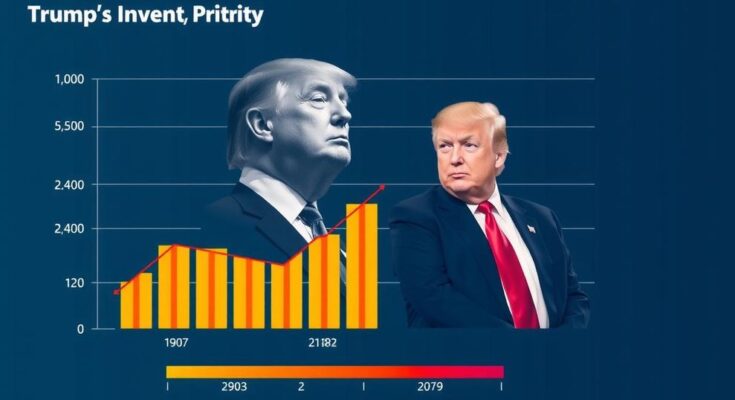Experts from St. Louis University express concerns about President Trump’s economic plan, predicting increased inflation and socioeconomic challenges. Key issues include the impact of tax cuts, deportation policies on labor markets, and potential trade conflicts. The shifting voter priorities signal a growing disconnect between economic concerns and party loyalty, complicating the political landscape.
In the wake of Donald Trump’s election, his economic blueprint has sparked alarming discussions among experts from St. Louis University. Professors predict his policies—centered on significant tax cuts, tariffs, and a stringent immigration stance—could trigger soaring inflation and jeopardize the economic future of younger generations. Economics chair, Dr. Hailong Qian, contends that Trump’s proposed deportation of illegal immigrants would devastate labor markets, especially in vital industries like agriculture and construction, leading to increased consumer prices and economic stagnation. The implications of Trump’s tax policies paint a bleak picture, indicating a $5.8 trillion addition to the national deficit, skewed toward benefiting wealthier Americans. This, according to Qian, could push lower-income families into a financial quagmire, exacerbated by likely cuts to essential social services. Furthermore, the repercussions of these tax cuts would mean higher interest rates on loans and credit, imposing additional strains on borrowing costs for average Americans. The looming threat of heavy tariffs, especially aimed at Chinese imports, might unsettle global supply chains, inflating consumer goods and rekindling international trade tensions. Professor Kenneth Warren emphasizes that Trump’s unilateral approach to tariffs could jeopardize long-standing alliances and destabilize the U.S. dollar’s status, underscoring the need for cooperative international trade strategies. Warren also highlights a significant shift in voter priorities, identifying economic security—not social issues—as the pressing concern for working-class Americans who have increasingly distanced themselves from the Democratic Party. Citing exit polls, he observes a worrying trend: lower-income voters gravitating toward Trump, showcasing a divide that continues to widen. As the Democratic Party’s grip weakens, with decreasing voter turnout indicative of broader discontent with political proceedings, Warren argues that the dissatisfaction has been festering since the financial crisis of 2008. He notes a cultural shift in voting preferences, emphasizing socioeconomic factors over traditional party support—a stark reminder of the changing landscape of American politics.
The article delves into the ramifications of President Donald Trump’s economic policies, analyzing expert opinions on the likely consequences for inflation and socio-economic divides in the United States. Focusing on Trump’s strategies regarding tax cuts, tariffs, and immigration, the discussions underscore concerns about labor shortages and growing deficits. The tensions between voter concerns and political party alignments are also critically examined, highlighting a significant shift in American electoral dynamics that has taken place over recent years.
In summary, Trump’s economic policies are forecasted to ignite inflation, disrupt labor markets, and deepen socio-economic disparities. As working-class voters pivot away from traditional party loyalty amid changing priorities, the political landscape grows increasingly fraught. The potential consequences of his tariffs and tax cuts may ripple through society, affecting not just economic stability but also the welfare of future generations, prompting a necessary reevaluation of national priorities and policy approaches.
Original Source: unewsonline.com



